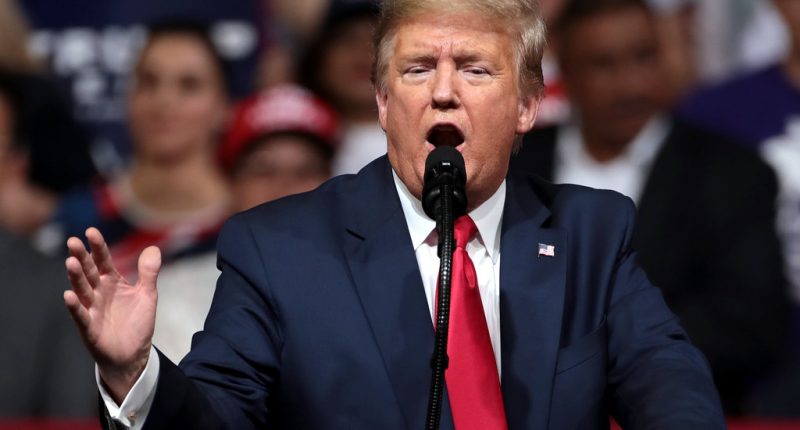Donald Trump and social media have a weird love-hate relationship, where he keeps complaining about said platforms but can’t seem to sign off. However, to suit them to his preferences, the President signed an executive order in May, seeking to ‘limit their power.’ Now, landing another blow to the multi-billion dollar industry, the Trump administration has filed a motion to dismiss the lawsuit levied against his executive order by these Big Tech companies, a Reuters report says.
It’s been no secret that President Trump loves posting on social media. However, the love has not always been reciprocated, with his posts facing censorship/complete removal on more than one occasion. The most notable of this were the infamous Trump-Twitter wars that took place in the Summer of 2020. The platform hid his post regarding the riots in Minneapolis, and flagged his tweet about mail in ballots for ‘misinformation.’
This made the President livid, who then seeked to “shut down or heavily regulate” social media, which he did with an executive order that tinkered with a law known as Section 230. This law protected social media companies from the content that was posted on their platforms, basically helping them maintain free speech on the internet, or so they say.
Trump argued that “the choices Twitter makes when it chooses to edit, blacklist, shadowban are editorial decisions, pure and simple,” adding that “In those moments, Twitter ceases to be a neutral public platform and they become an editor with a viewpoint.”
Twitter said that “This EO is a reactionary and politicized approach to a landmark law. #Section230 protects American innovation and freedom of expression, and it’s underpinned by democratic values. Attempts to unilaterally erode it threaten the future of online speech and Internet freedoms.”
Google was also quick to respond and noted that it has clear content policies and “we enforce them without regard to political viewpoint.”
Thus, companies launched a lawsuit against the order under the banner of Center for Democracy and Technology (CDT), a Washington-based tech group funded by Facebook Inc, Alphabet Inc’s Google, and Twitter Inc. Avery Gardiner, CDT’s general counsel, noted that the EO was “unconstitutional.”
However, Trump isn’t ready to pay heed to what these companies have to say, and has filed a motion against the litigation, claiming that their targeting of the EO is a “profound misunderstanding.”
The Department of Justice, the government entity that filed the motion, noted that “The EO challenged here imposes no obligations on any private party,” with the motion clearly adding that “It directs executive officials to take steps that could lead various agencies to examine … allegations that large social media online platforms have displayed political bias in moderating content.”
While social media platforms launch an attack at the government, Congress has also started its own battle, and accused Google, Facebook, Apple and Amazon of engaging in monopolistic practices. Thus, the relationship between BigTech and American government isn’t very jolly right now, to say the least.





